

In 2017, journalists in Latin America grappled with a growing crisis of freedom of expression. Many risked their lives to tell important stories that may have otherwise gone untold, while others faced threats against themselves and their families.
The grave headlines were a somber reminder of why our work at the Knight Center for Journalism in the Americas is so important. Throughout the past year, the Knight Center shed light on the challenges that Latin American journalists face, but we also illuminated what’s working — specifically the people and projects that are paving a path for journalistic innovation in the hemisphere.
The Knight Center, located at the University of Texas at Austin’s Moody College of Communication, provided resources and support to thousands of journalists from Latin America and around the world through our online courses, blog, events, and publications. Journalists turned to us for top-notch training, news and information, and creative inspiration. Their interest in our programs has been a motivator as we look for new ways to grow and improve the Center’s work.
As the new year begins, we invite you to take a look back at the Knight Center’s activities and accomplishments in 2017, with a nod toward the year ahead.
In 2017, the Knight Center celebrated five years of its pioneering program in Massive Open Online Courses (MOOCs) in journalism. Since 2012, the Center has held 36 MOOCs and nine Big Online Courses (BOCs) — reaching nearly 123,000 students in 175+ countries.

Our distance learning program has a rich history; prior to launching our MOOCs, the Knight Center offered 120 smaller courses from 2003 to 2012, reaching about 7,000 journalists from Latin America and the Caribbean. With generous support from the John S. and James L. Knight Foundation, the Knight Center has since established itself as a global leader of distance learning for journalists. Our courses, which typically last four to six weeks, have kept journalists up-to-date with digital tools and trends, prompted them to pursue new endeavors or return to school, and inspired them to take a more innovative approach to their work in media.
Marilice Daronco, communications analyst and freelancer at Brazil’s Folha de S. Paulo, has taken 10 courses so far and plans to take more.
“The cool thing is that the learning is not only in the available classes, but also (and it’s one of the best parts) in the exchanges between colleagues in the forums,” Daronco said. “I am proud to say that I have met a lot of cool people in these processes. Many people who contributed to my professional growth and whose work, carried out in different corners of the country or even outside, I possibly would not know without the MOOCs.” (Hear what other students had to say here.)
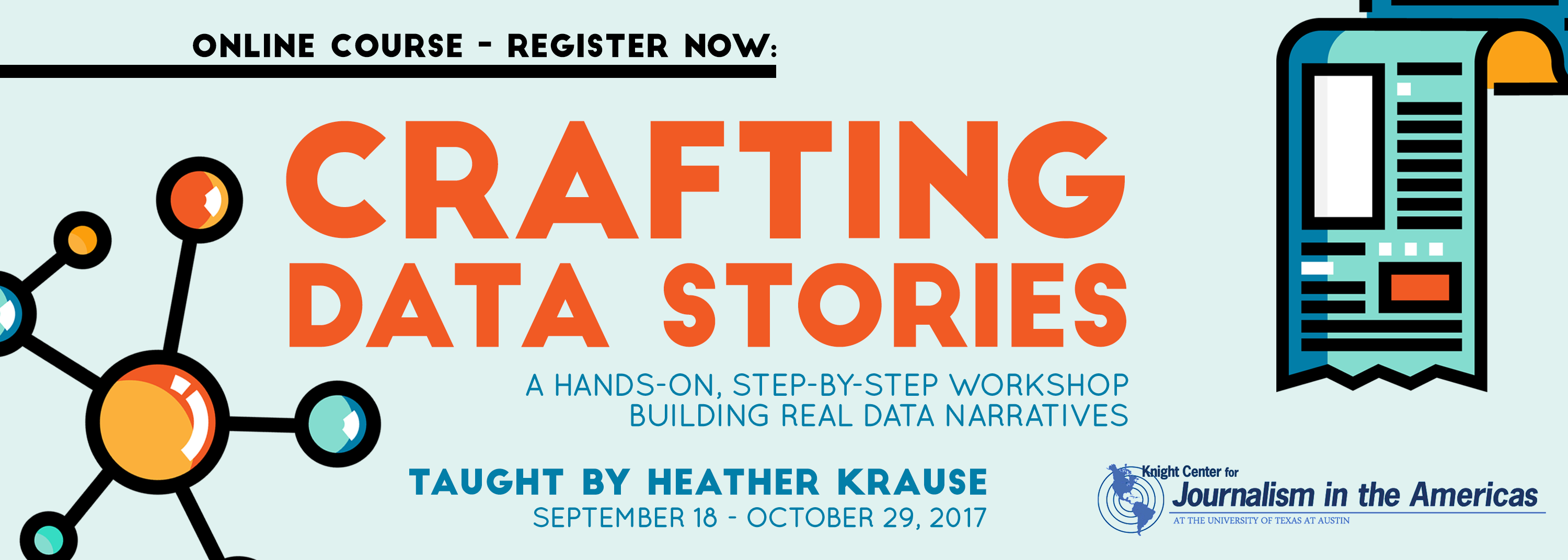
In 2017 we offered 11 courses that reached 33,986 students from around the world. The courses were offered in English, Spanish, and Portuguese and covered a variety of topics mainly focused on digital innovations and trends in journalism. All but one were free of charge.
The courses were taught by subject-matter experts who took time to engage with students, answer their questions, and form a community of support around the course topics. The courses were, in a sense, global events that convened journalists around a shared interest in the topic at hand. Here are the 11 courses we offered, along with the instructors who taught them:
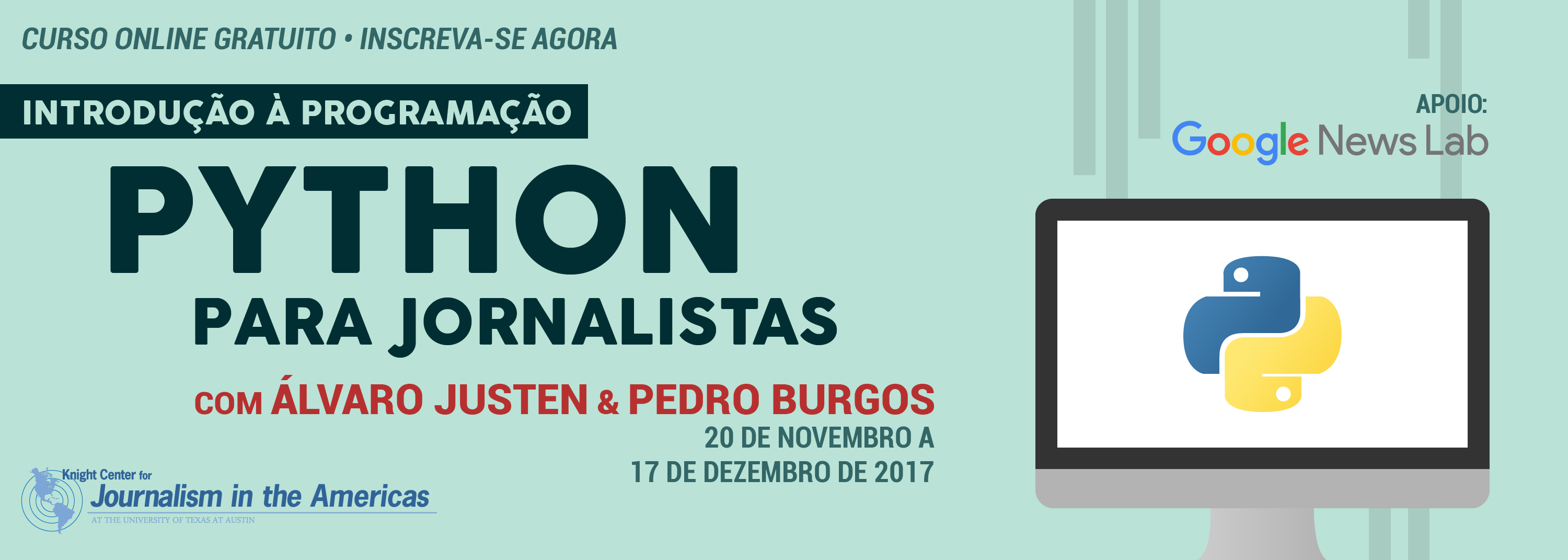
When possible, we collaborated with other organizations, which helped diversify and expand our courses’ reach and topics. Our Portuguese-language courses on fact-checking and videojournalism, for instance, were held in partnership with the National Association of Newspapers (ANJ for its acronym in Portuguese), with support from Google News Lab. Three other MOOCs — on virtual reality, fact-checking, and Python — were also supported by Google News Lab.
Additionally, we worked with the United Nations Educational, Scientific and Cultural Organization (UNESCO) and the Special Rapporteur for Freedom of Expression of the Inter-American Commission on Human Rights (IACHR) to create a Spanish-language course on freedom of expression.
The course attracted 2,215 judges and other justice system operators in Latin America and helped reinforce their knowledge about the international standards that govern freedom of expression, access to public information and protection of journalists. We held this course a couple of times in the past — with support from the Ibero-American Network for Schools of Judges, the Foundation for Press Freedom, the Latin American Internet Association, the OAS School of Government and the Government of Sweden — but this most recent one attracted more students than in any years past. (We’re now accepting applications for our next judges course, which will be held in Spanish from April 2 to May 13.)
We have an exciting lineup of courses that we’ll be rolling out in 2018. First among them is a Spanish-language data analytics for journalists course, which will be held January 15 to February 11. You can visit journalismcourses.org at any time to see our latest course offerings.
In April, the Knight Center held its 18th annual International Symposium on Online Journalism (ISOJ), attracting about 430 attendees from 34 different countries. Thousands more followed the symposium from afar via our expansive online coverage, including live video streaming on YouTube and Facebook.
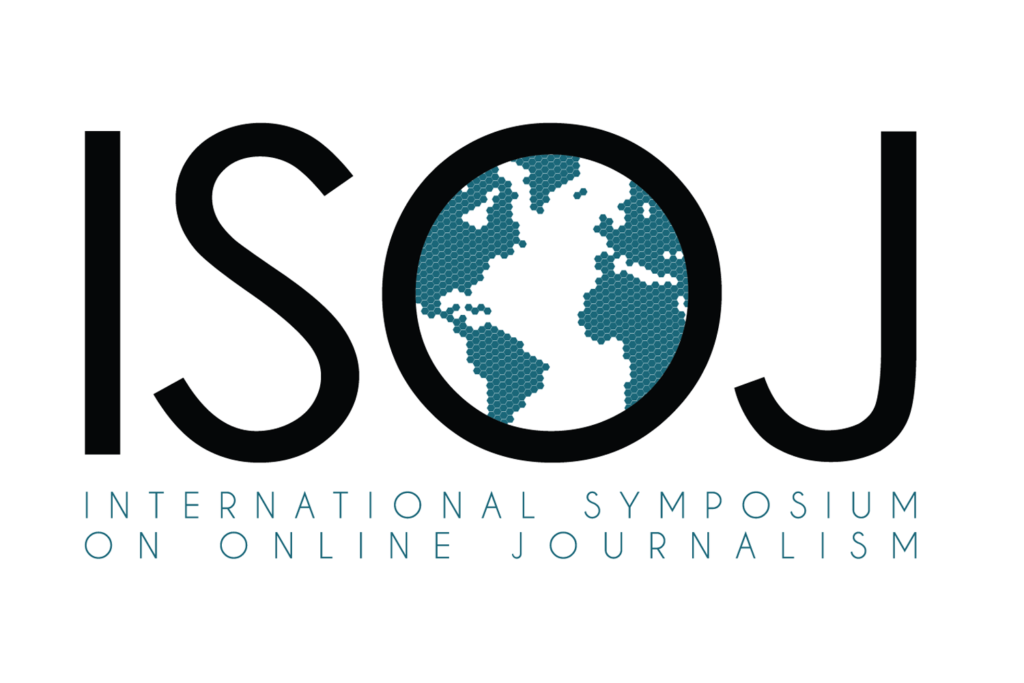
The symposium bridged the gap among professional journalists, media executives, digital news innovators and academic researchers in the U.S. and abroad, and served as a place where trends were predicted, professional relationships were made, and creative ideas were shared. We also launched a new ISOJ website, ISOJ.org, which features coverage from all previous symposia and, in doing so, tells a story about the evolution of online journalism. The site has become a rich repository of transcripts, videos, photos, news stories and more from all the symposia dating back to 1999.
Visit the site and you’ll see stories about this past year’s ISOJ, which featured nearly 70 international speakers and moderators who are among the top leaders in the media industry. They included:
The speakers discussed topics such as virtual reality, 360 video, bots, podcasting, accountability journalism in the current political climate, and new business models and approaches to sustainability — both in the U.S. and abroad. As in years past, the symposium also featured academics whose work was published in our academic journal #ISOJ, which features articles based on original research, methodologies relevant to the study of journalism and innovative technologies, and critical syntheses of research and theoretical perspectives on today’s journalism.
The academics who presented at ISOJ and who are featured in the 2017 journal focused on four key topics: the role of audience engagement editors in newsrooms; journalists’ perceptions of statistics and data journalism; the impact of product development on journalism practice; and the power of the Medium platform for publishers and independent journalists. For the first time in 2018, the journal will feature a special theme — habits of thought in journalism — and will be guest edited by Jane B. Singer, director of research and professor of journalism innovation at City, University of London.
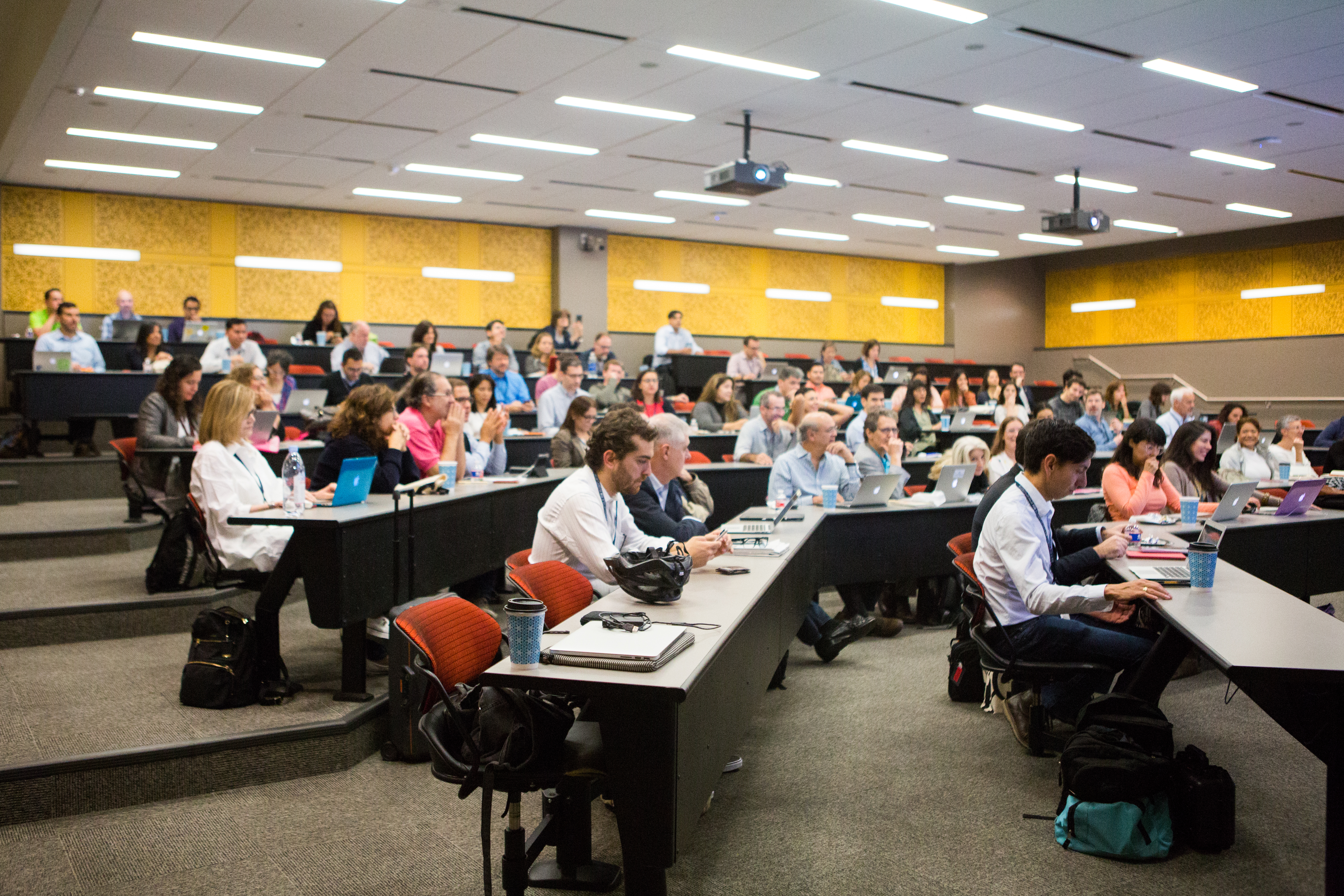
During ISOJ, we worked with Facebook and Google to hold two lunch workshops — one on Facebook Tools for Journalists and another on Google Tools for Journalists, which was held in both English and Spanish. Other supporters included the Knight Foundation, Dallas Morning News, the Ford Foundation, Univision, and the Moody College of Communication at the University of Texas at Austin.
The day after the symposium, the Knight Center held its annual post-event: the 10th Iberian American Colloquium on Digital Journalism, a Spanish-language seminar offered to ISOJ attendees from Latin America, Spain and Portugal. With support from Google Latin America, the colloquio attracted about 120 people and took a deep dive into topics such as data journalism, multidisciplinary journalism, and the growth of digital media startups in Latin America.
We hope you’ll join us for the 19th annual ISOJ, which will take place April 13-14 at UT Austin. Registration will be opening on ISOJ.org within the next week or two.
The Knight Center’s trilingual blog, Journalism in the Americas, covered the biggest news stories about Latin American media in 2017. The blog published stories about attacks on press freedom, violence against journalists, censorship, gender discrimination in newsrooms, the Lava Jato corruption scandal, Emilio Gutiérrez Soto‘s attempts to gain asylum in the U.S., and more. But it also focused on what’s working in Latin American media by illuminating journalistic trends and innovations that are shaping media coverage throughout the hemisphere.
Most notably, the blog launched a series about innovative journalism in Latin America with support from the Open Society Foundations’ Program on Independent Journalism. The series, which ran for six months, featured five guides that took a deep dive into audience growth, digital security, podcasting, video production, and data journalism, with the goal of deepening Latin American journalists’ knowledge and understanding of these topics.
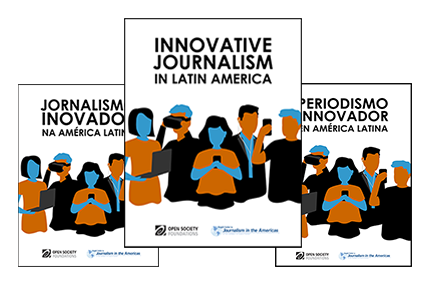
The series also featured 17 stories that were a mix of case studies and trend pieces. They focused on a variety of topics relevant to today’s newsrooms, including fact-checking, multidisciplinary journalism, advertising, data journalism, transnational investigation, innovative digital narratives, podcasts, millennial-oriented sites, games, longform journalism, newsletters, start-ups, Facebook Live, Periscope, infographics, virtual reality and 360 video. Our profile on Brazilian journalist Fernando Rodrigues and his site Poder360 was the most popular story of the year, offering journalists valuable lessons on becoming successful entrepreneurs in the industry.
We recently launched a new iteration of the series, with a focus on the thought leaders behind innovative journalism efforts in Latin America. You can read our latest stories from the series here and here.
Our team of bloggers is small, but their reach is wide. Each week, they write and translate multiple stories with an eye toward informing and inspiring readers. In 2018, we plan to enhance the blog as part of a larger effort to redesign the Knight Center’s website. You can keep up-to-date with our blog and Knight Center News updates by subscribing to our weekly newsletter.
The stories and guides in the series mentioned above were compiled into a comprehensive book available in print and online. The ebook, titled “Innovative Journalism in Latin America,” was released in Spanish at the Knight Center’s 10th Ibero-American Colloquium for Digital Journalism in April 2017. The English and Portuguese versions were subsequently released in May on the Center’s website.
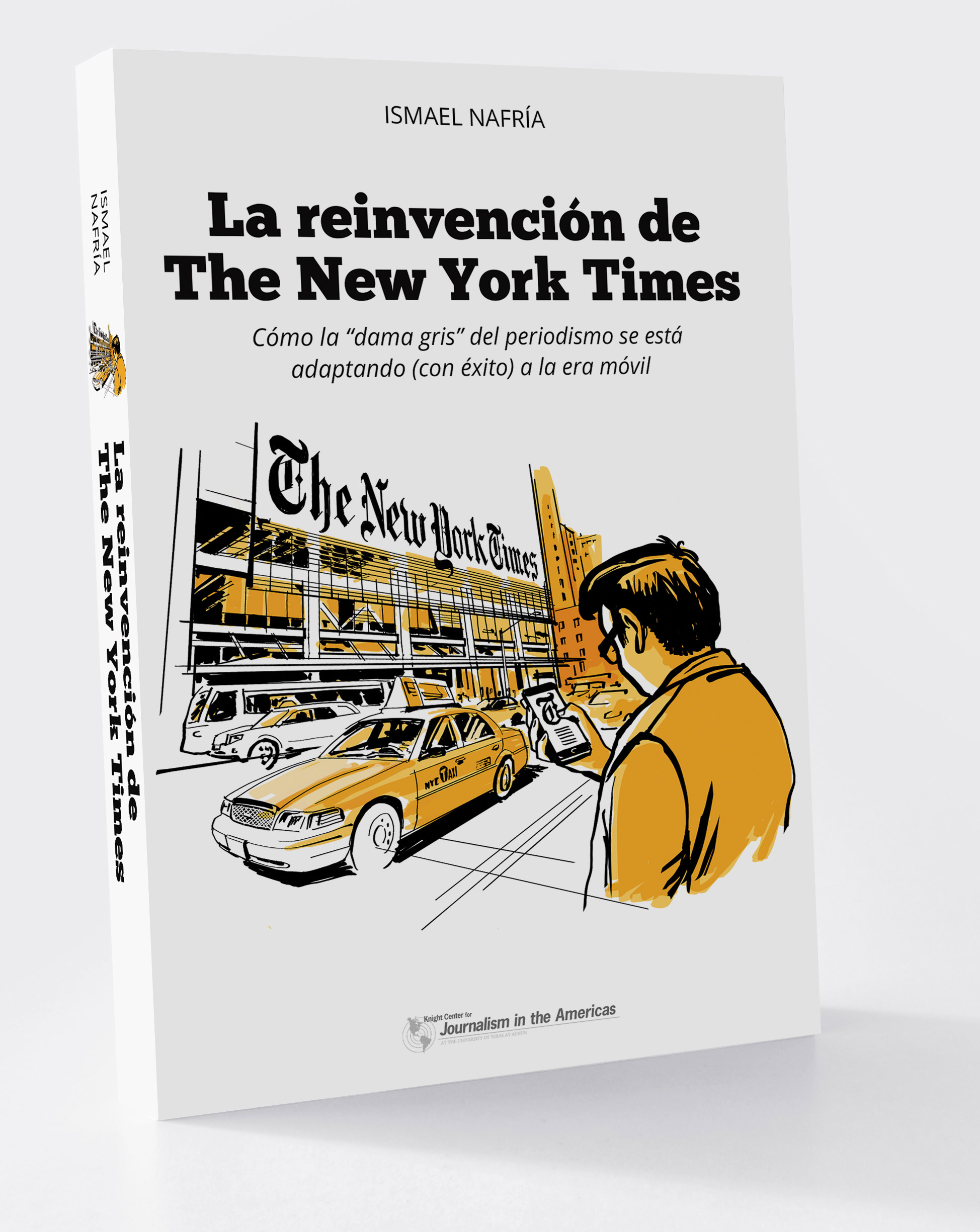
All three versions are now available for free in the Knight Center’s Digital Library, which has more than a decade’s worth of books and reports that have served as tools for journalists interested in starting digital projects.
The Knight Center published two other books in its Digital Library this past year: “Global Journalism Education: Challenges and Innovations” and “The Reinvention of The New York Times: How the ‘Gray Lady’ of Journalism is Adapting (Successfully) to the Mobile Era.”
“Global Journalism Education” looks at the state of global journalism education and predictions for the future, as well as innovations in the classroom. The book featured contributions from educators around the world and was edited by journalism professors Robyn S. Goodman and Elanie Steyn.
“The Reinvention of The New York Times” offers a comprehensive look at how the Times has adapted to the digital age over the past 20 years. The book was written by Catalan journalist Ismael Nafría, who completed the project while a journalist in residence at the Knight Center. The book is available in Spanish on the Knight Center’s website, and physical copies of the book can be purchased on Amazon. It’s currently being translated into English.
In 2017, the Knight Center hosted a speaker series that featured several prominent journalists:
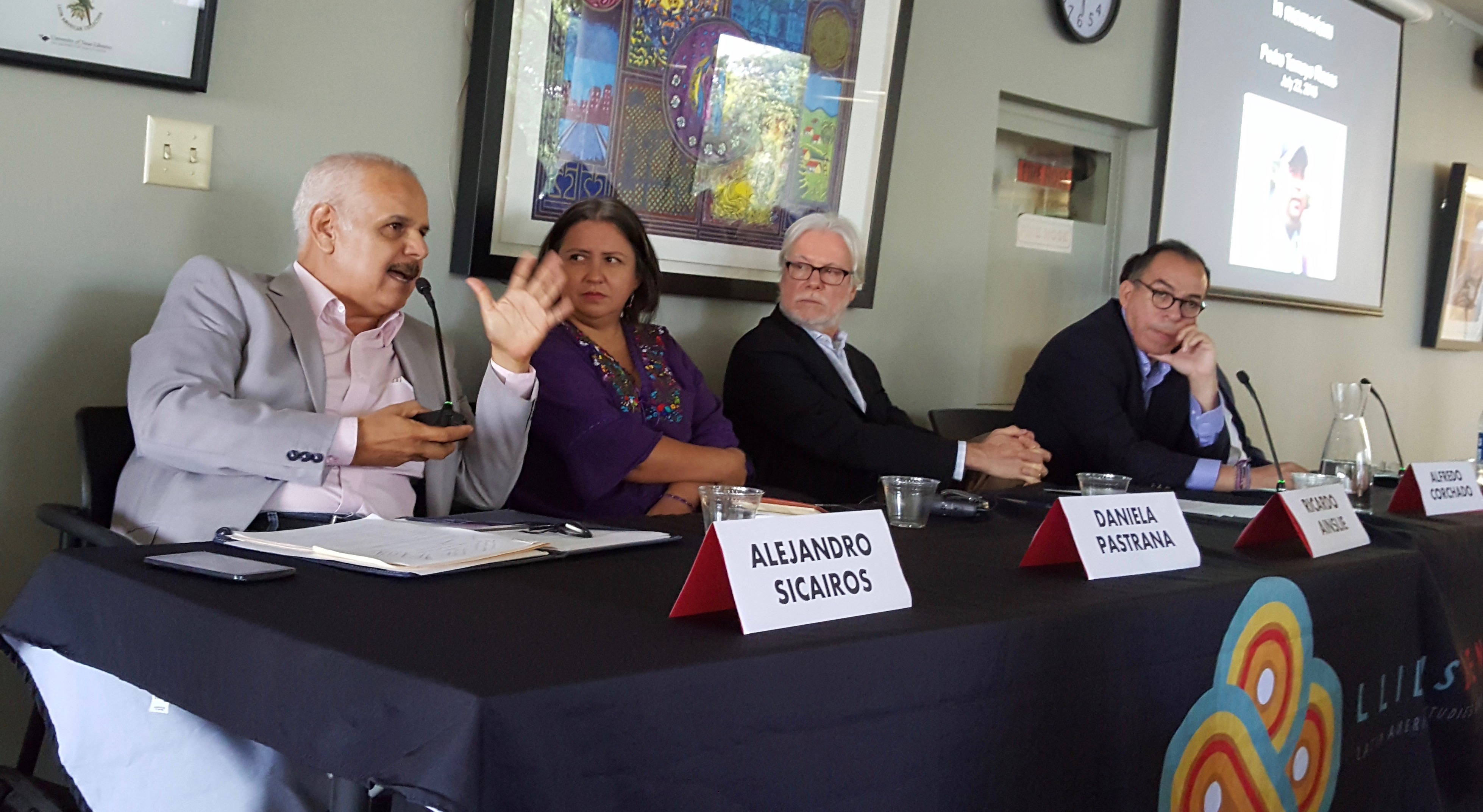
The Knight Center also co-sponsored an event, “Foro Urgente: Mexican Journalists Confront Violence Against the Press,” with the Teresa Lozano Long Institute of Latin American Studies. Featured speakers were Ramón Cantú, editor of El Mañana newspaper in Nuevo Laredo; Alfredo Corchado, Dallas Morning News correspondent in Mexico City; Daniela Pastrana, director of Periodistas de a Pie; and Alejandro Sicairos, a freelance journalist from Culiacán and founder of Riodoce.
All of the talks — which were held at UT Austin — were open to the public and provided valuable tips, lessons learned, and an exchange of ideas among speakers and attendees.
The Knight Center’s goals for 2017 were met with great success. We now have new and ambitious goals for 2018, with the aim of supporting even more journalists in Latin America and the world at large.
Under the leadership of founder and director Rosental Alves, and newly-hired assistant director Mallary Tenore, the Knight Center staff has already been hard at work this year. We’re grateful for our Knight Center community and hope you’ll take some courses, follow our blog, read our publications, and join us at ISOJ in April. We look forward to engaging with you in the year ahead!

Knight Center for Journalism in the Americas
300 West Dean Keeton
Room 3.212
Austin, TX, 78712
Phone: 512-471-1391
Email: journalismcourses@austin.utexas.edu